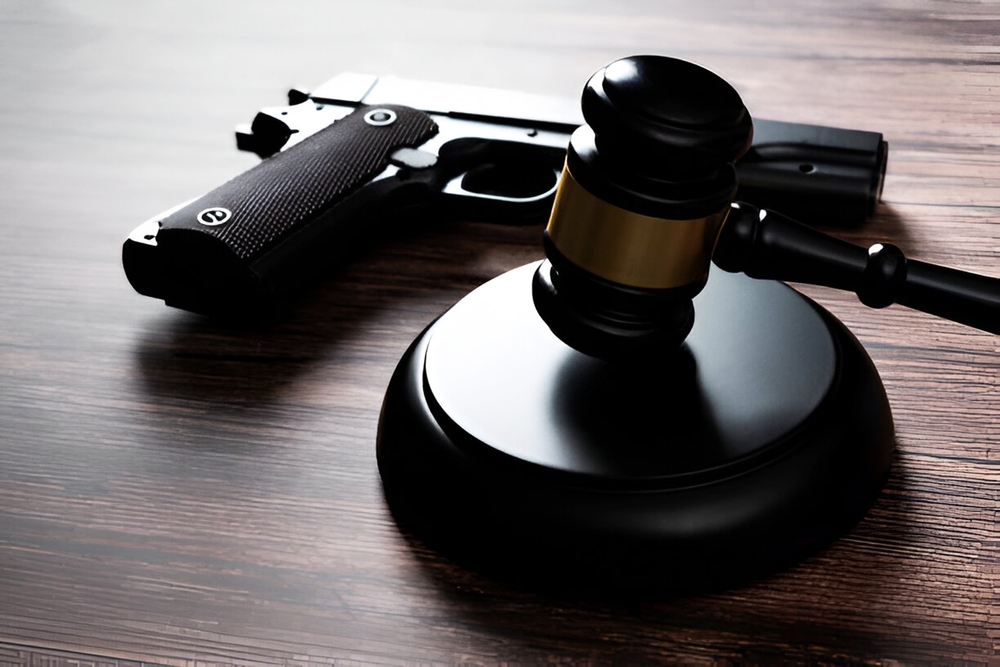
If you're a gun owner in California, it's critical to understand how and when law enforcement can legally seize your firearms. From red flag laws to search warrants, the laws surrounding gun seizure are strict, but they’re also complex. Whether you live in the heart of Los Angeles or elsewhere in the state, knowing your rights can mean the difference between keeping your property or facing unexpected legal consequences.
In this blog, we’ll walk you through the circumstances under which police can confiscate firearms, your constitutional protections under the Fourth Amendment, and what steps you can take if your weapons are seized. We'll also cover how the Law Offices of Christopher Chaney can help protect your rights and advocate on your behalf.
When Can Police Seize Your Firearms in California?
In California, law enforcement may seize firearms under a few specific conditions. These include:
1. Search Warrant or Arrest Warrant
If police have a valid warrant that specifies your firearms (or if the weapons are discovered in plain view during a lawful search), they can seize them. This often happens during investigations related to alleged crimes, including domestic violence, illegal firearm sales, or threats made using a weapon.
2. Red Flag or Gun Violence Restraining Orders (GVROs)
Under California's red flag law, a court can issue a Gun Violence Restraining Order allowing police to temporarily take away your firearms if someone believes you're a threat to yourself or others. These orders can be requested by:
- Family members
- Roommates
- Law enforcement
- Certain employers or school officials
Once issued, police can seize your guns for up to 21 days initially, with the possibility of extensions after a court hearing.
3. Domestic Violence or Mental Health Holds
Firearms are often confiscated during domestic violence investigations. Under California Penal Code § 18250, officers must seize firearms or ammunition that are in plain sight or discovered during a lawful search when responding to domestic disturbances.
In addition, if someone is placed on a 72-hour mental health hold (often referred to as a 5150 hold), the state can temporarily take away their firearms. These seizures are subject to appeal, but they often happen quickly and without prior notice.
Similar Post: How Does California Define “Intimate Partner” in Domestic Violence Cases?
Do Police Always Need a Warrant?
Not always. While the Fourth Amendment protects against unreasonable searches and seizures, several exceptions apply when it comes to firearm seizure in California.
Exceptions Include:
- Plain view doctrine: If officers lawfully enter your home and see a gun in plain sight, they may be able to take it without a warrant.
- Exigent circumstances: If officers believe someone is in immediate danger, they may seize weapons without prior court approval.
- Probation or parole conditions: Individuals on supervised release may have reduced Fourth Amendment protections, allowing warrantless searches and seizures.
That’s why it’s so important to speak with a California criminal defense attorney if your weapons were taken. Just because the police took them doesn’t mean they did so lawfully.
What to Do If Police Seize Your Firearms
If law enforcement confiscates your firearms, remain calm. Do not attempt to stop them, argue, or physically interfere. Instead, take these steps:
1. Request a Receipt
Always ask for a written inventory or receipt of what was taken. This document will be critical if you decide to challenge the seizure later in court.
2. Call an Attorney Immediately
Don't wait to get legal help. The Law Offices of Christopher Chaney can review whether the seizure was lawful and advise you on your options to recover your weapons.
3. File a Claim for Return
Under California Penal Code § 33850, you have the right to file a claim to have your firearms returned. However, you may need to prove legal ownership, pass a background check, and in some cases, attend a court hearing.
Can You Be Charged with a Crime After Seizure?
Yes. Seizure of your firearms may be the first step in a broader investigation. Police may be looking to press charges for:
- Unlawful possession
- Illegal modifications
- Possession by a prohibited person
- Failure to comply with registration laws
If you believe you're under investigation, do not answer police questions without your lawyer present. Statements made under stress or confusion can, and often are, used against you.
Lesser Penalties If You Were Not “Engaged in the Business”
Let’s say your firearms were seized during a one-time sale or transfer. You may not be charged with illegal firearms dealing under federal law, which typically targets those who are “engaged in the business” of selling guns for profit.
However, this does not mean you're in the clear. Even private transfers in California are tightly regulated and must go through a licensed dealer. The penalties may be less severe, but you could still face misdemeanor charges, fines, or a temporary ban on owning weapons. Your attorney can argue for reduced penalties based on the facts of your case.
Similar Post: What Happens If You're Accused of Selling Guns Without a License in California?
What If You’re Falsely Accused?
Unfortunately, it’s not uncommon for firearms to be seized after exaggerated claims or false reports, especially in the wake of domestic disputes or neighborhood complaints.
If this happens, your lawyer can:
- Challenge the basis of the seizure
- Represent you in hearings to contest red flag orders
- Seek the return of legally owned firearms
- Ensure your Second and Fourth Amendment rights are upheld
Local Focus: What Gun Owners in Los Angeles Should Know
In Los Angeles, gun owners are often subject to additional scrutiny due to the city’s strict firearm regulations and the LAPD’s active enforcement of red flag laws. If you're in the Valley, Downtown L.A., or Westside neighborhoods, it's especially important to know your rights and stay in compliance with all local ordinances.
Even legal gun owners can face legal trouble for issues like:
- Failing to lock up firearms
- Possessing unregistered handguns
- Buying from out-of-state sellers without going through a California FFL (Federal Firearms Licensee)
Your Gun Rights Are Worth Protecting — Call the Law Offices of Christopher Chaney in Los Angeles
If your firearms were seized or you're under investigation for gun-related offenses, you don’t have to face the system alone. At the Law Offices of Christopher Chaney, we understand what’s at stake when your Second Amendment rights are threatened.
Whether your case involves a red flag law, a domestic incident, or accusations of unlicensed sales, we’ll fight to protect your property, your rights, and your future. Based in Los Angeles, we represent clients across Southern California and bring a strong defense mindset to every case we handle.
Call today at 818-330-5198 or fill out our online contact form to schedule a confidential consultation.
Disclaimer: This blog is intended for informational purposes only and does not establish an attorney-client relationship. It should not be considered as legal advice. For personalized legal assistance, please consult our team directly.





